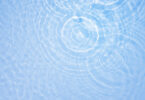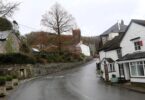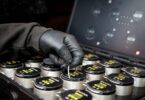NSF, a global leader in public health, proudly celebrates the 50th anniversary of the Safe Drinking Water Act (SDWA). The establishment of the SDWA led to NSF’s development of NSF/ANSI/CAN 60: Drinking Water Chemicals – Health Effects and NSF/ANSI/CAN 61 –Drinking Water System Components standards to protect drinking water against natural and man-made contaminants. This anniversary marks a significant milestone in the improvement of health and water safety across the United States and recognizes the commitment of the SDWA and NSF in delivering clean and safe drinking water to communities nationwide.
The US Congress passed the SDWA in 1974, enabling the Environmental Protection Agency (EPA) to improve drinking water quality across the country through setting and enforcing drinking water quality standards. In 1985, NSF responded to the EPA’s call for a private sector solution, leading a consortium comprised of the American Water Works Association (AWWA), the American Water Works Association Research Foundation (AWWARF), Association of Safe Drinking Water Administrators (ASDWA) and the Conference of State Health and Environmental Managers (COSHEM). This resulted in the creation of the national standards, NSF/ANSI 60 in 1987 and NSF/ANSI 61 in 1988. These standards have since been harmonized with Canada as NSF/ANSI/CAN 60 and NSF/ANSI/CAN 61. NSF also developed a self-funded product certification program that replaced the EPA’s US advisory program.
“NSF is proud to have played a critical role in the Safe Drinking Water Act and improving North America’s drinking water quality through developing NSF/ANSI/CAN 60 and NSF/ANSI/CAN 61. Since its inception, the Safe Drinking Water Act has been the foundation of drinking water safety, and rigorous testing and certification to NSF/ANSI/CAN 60 and NSF/ANSI/CAN 61 support that through enforceable water requirements that are consistent across states and provinces.” Pedro Sancha, President and CEO of NSF
The two standards revolutionized the water industry and drove change, including lowering lower lead content and leaching into drinking water. This propelled them to gain global recognition and growing acceptance as certified products became synonymous with quality and safety. The span of their impact and recognition includes:
- Over 95% of US states require product certification to NSF/ANSI/CAN 60 and NSF/ANSI/CAN 61
- Most Canadian provinces and territories require product certification to NSF/ANSI/CAN 60 and NSF/ANSI/CAN 61
- NSF/ANSI/CAN 60 and NSF/ANSI/CAN 61 are designated national standards in Canada
- Over 82,000 products are certified by more than 1,400 manufacturers to NSF/ANSI/CAN 60
- More than 70,000 products are certified to NSF/ANSI/CAN 61 by over 2,100 manufacturers
- Many countries in Latin America, Europe, the Middle East, Africa and Asia Pacific are accepting NSF/ANSI/CAN 60 and NSF/ANSI/CAN 61 for the commercialization of products in their domestic markets
NSF’s involvement in the Safe Drinking Water Act launched our critical work in the water industry and driving drinking water quality forward. We are proud of NSF/ANSI/CAN 60 and NSF/ANSI/CAN 61 and how they have improved global water safety and human health. We are excited to continue this work and look forward to continued progress and improvement of water quality over the next 50 years.
Dave Purkiss, Vice President of Water, NSF.
Since publishing, NSF/ANSI/CAN 60 and NSF/ANSI/CAN 61 continue to evolve and are updated annually to ensure they address current and emerging threats to our drinking water, such as PFAS and other contaminants. Joint committees comprised of public health advocates, industry experts and government experts collaborate to review, and if necessary, revise the standards so they can address the latest treatment technologies.
The NSF/ANSI standards are an important component of the protections provided by the Safe Drinking Water Act that requires EPA to ‘provide accurate and timely technical information and assistance’ to organizations like NSF. Eric Burneson, Director of the Standards and Risk Management Division, EPA
NSF is committed to continuing its work in helping ensure that water quality continues to progress in future generations. It is dedicated to working globally to fulfill its mission of improving human and planet health. To learn more about the SDWA and NSF/ANSI/CAN 60 and NSF/ANSI/CAN 61, visit NSF.org.







